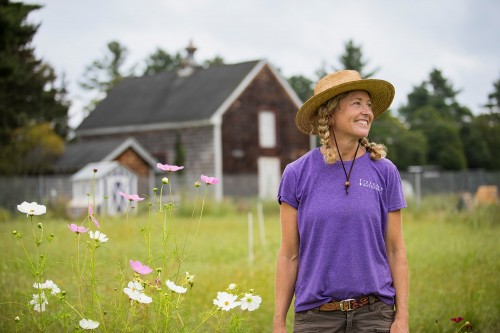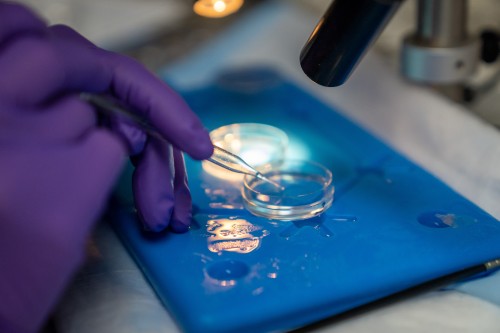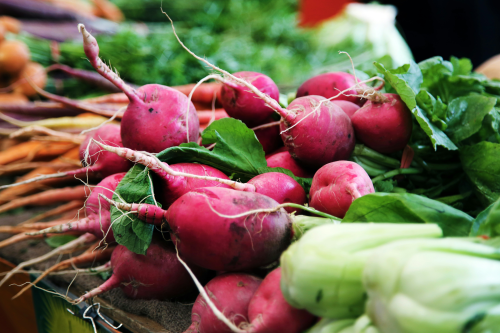Student Spotlight: Emma Worster ’25 on Sustainable Leadership
The graduating senior discusses her efforts to help make Stonehill a greener campus.
As one of Stonehill College’s Sustainability Leaders, Emma Worster ’25 helps empower other students to make environmentally conscious decisions. One of the most impactful ways she has accomplished this goal is through the creation of a composting pilot program in the College’s residence halls.
As part of the initiative, which launched in spring 2024, Worster and other members of Students for Environmental Action set up composting bins in several dormitory kitchens across campus. One student in each hall serves as their area’s volunteer compost leader. They are responsible for collecting the bins each week and bringing them over to The Farm, where food scraps can be added to a compost pile and eventually transformed into nutrient-rich soil.
“This program is designed to not only decrease food waste but also educate the student body on the ways that everyday habits like composting can have a real impact,” Worster said. “The use of these compost bins reduces Stonehill's carbon footprint, supports local sustainable agriculture, and lowers The Farm’s overhead costs tied to the compost purchased for planting season.”
Though Worster will graduate in May 2025, she is grateful that this program will continue and has the potential to expand. As she prepares to leave campus having helped bring positive change to our residence halls, we recently sat down with Worster to chat about her work as a Sustainability Leader at Stonehill.
Worster (center) with other Stonehill community members during a campus clean-up event held on Tuesday, April 22, 2025, which was Earth Day.
How did your personal sustainability journey begin?
I’ve always had a love for nature and things like hiking, being outdoors, and riding horses. And I wanted to share my passion because I truly believe that nature is healing and that we have a duty to take care of the natural world.
Things really took flight for me when I came to Stonehill and chose to major in environmental studies. For the past few summers, I’ve worked with Casella Waste Systems as a sustainability intern. I’ve learned a lot of great things there and have been able to apply them to my work on campus.
How would you define leadership in the context of sustainability?
Leadership in sustainability isn’t just about setting goals or making bold statements, it’s about listening. I believe it’s essential to understand what the community values, what concerns them, and what drives their passion for a more sustainable future. By actively listening and engaging with those around me, I aim to inspire action and solutions that are grounded in shared visions.
What has your involvement with sustainability initiatives at Stonehill taught you about yourself? What are some of the hard or soft skills you’ve gained through your work?
I’ve learned how to speak to different campus stakeholders, from students to senior administration. Sustainability is a topic that affects everyone, which is exciting because you can help connect different people and unify them. That said, you need to know how to address different groups, whether it’s using different language or information to get your point across.
I’ve also become a stronger public speaker. I was timid when I first started college. If you had told me that I’d be as involved or as vocal as I am now, I never would have believed you. I feel like the environment at Stonehill has been so supportive. It has allowed me to break out of my shell and become the person that I am today. I’m thankful for that.
What would you say are some everyday things that campus community members can do to be more sustainable?
I would encourage people at Stonehill to get involved in the sustainability initiatives on campus, many of which are run by Students for Environmental Action. There are so many ways for students to gain the hands-on experience and skills needed to be a leader in sustainability.
I think it’s also important to be conscious of the single-use products that we use and to emphasize reducing and reusing in our everyday lives. Making little changes like using a water jug instead of a plastic bottle can have a really big impact.
How will sustainability factor into your life and career after you graduate?
I’ve been invited to work for Casella Waste Systems, where I previously interned, as a Strategic Accounts Manager. My role will include working with higher education institutions in the Boston area on their sustainability initiatives and goals. I’m very excited to return to such a great company that has taught me so much!


